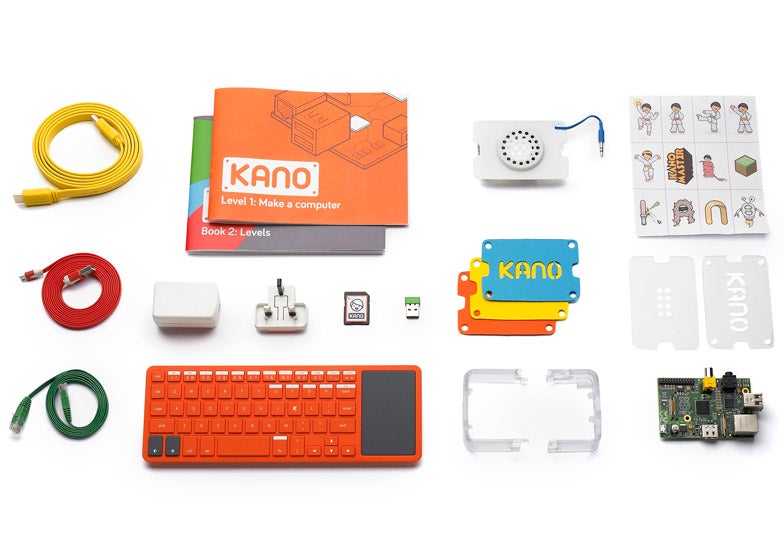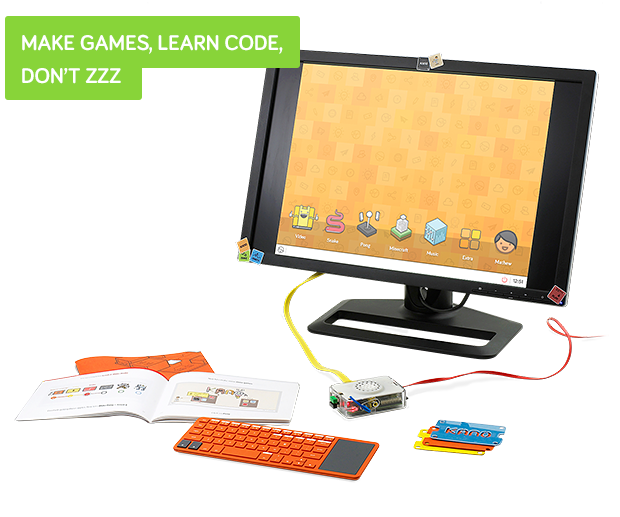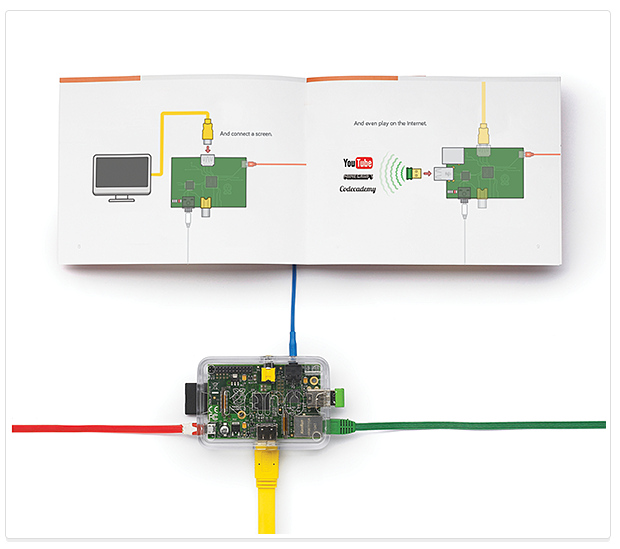Kano: a Raspberry Pi computer that snaps together like Lego in 107 seconds
New development kit for the credit-card sized computer aims to open up basic computer coding to younger students

A new development kit for the famed Raspberry Pi offers users the chance to build their own computer in just a couple of minutes.
The credit-card sized Raspberry Pi has now sold more than two million units and has powered an amazingly diverse array of computer projects (including replicating Felix Baumgartner's skydiving record with a teddy) but some fans worry that the computer’s bare bones aesthetics are putting people off.
The Raspberry Pi: what is it and what can I do with it?
Kano aims to fix this, offering a “computer and coding kit for all ages” that is “simple as Lego [and] powered by Pi”. Buying the Kano gets you everything you need to set up a computer apart from a display: there’s a manual, an operating system on a SD card, a keyboard with built-in touchpad, all the necessary cables and – of course – the Raspberry Pi itself.
Once the computer has been snapped together and hooked up to a display, the custom Kano operating system will load (it’s based on Debian Linux), offering users a number of challenges to introduce them to the Raspberry Pi and its possibilities.

As well as hoping to attract more young people to the world of coding and computer engineering, Kano also has worldwide ambitions, with the non-profit Kano Academy aiming to place the “low-cost, homebrew tech into the hands of smart young people worldwide.”
"We've been a global project since day one," co-founder Alex Klein tells The Independent. "The next invention generation is rising now, and in places that have traditionally been ignored - Sierra Leone, Harlem, Mongolia, Hackney.
"We think it makes more sense to take nothing for granted, and provide a simple, open playkit for the curious, wherever they live - they'll hack to purpose to solve local problems rather than the western buzzwords or imaginings surrounding what 'the Third World needs.'"
Kano is far from the first project to “stand on the shoulders of giants” (their own words) and attempt to expand upon the success of Raspberry Pi, but they may have created the most beautiful solution to the Pi’s sometimes-intimidating simplicity.

The London-based creative consultancy MAP is responsible for the look of Kano and this design heritage shows. The components are brightly coloured and robust looking, managing to blend the primary-colour obsessed design language of Google with a certain Scandinavian functionality.
It may sound trivial to praise a computer designed to teach coding purely on its looks, but this could be the key factor for the project’s success. The Kano team cites the “the intimidation factor” as one of the divisions between the “tech-literate 1%” and the rest of us, but with the Kano computer this barrier looks set to vanish.
Join our commenting forum
Join thought-provoking conversations, follow other Independent readers and see their replies
Comments
Bookmark popover
Removed from bookmarks